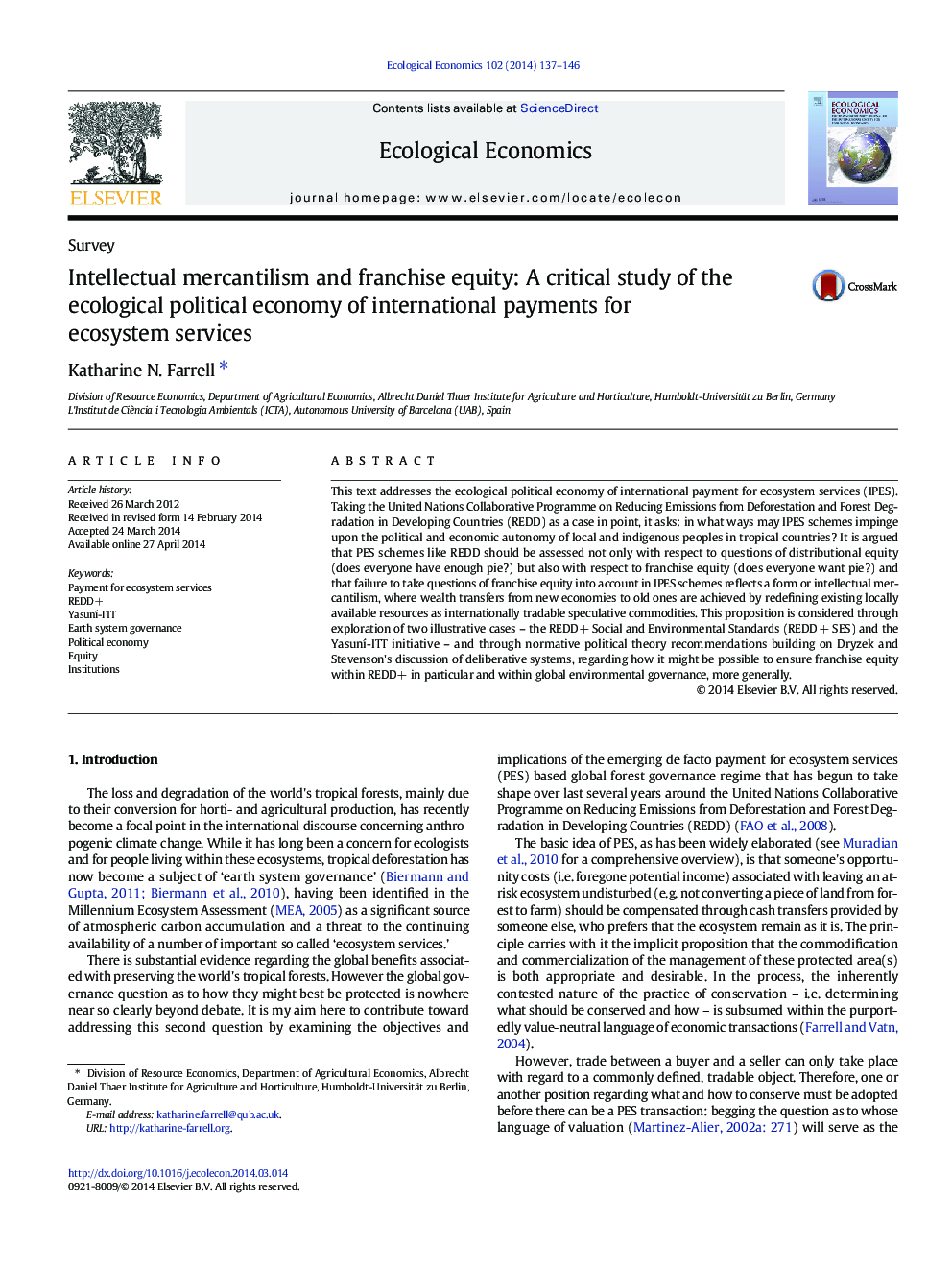| کد مقاله | کد نشریه | سال انتشار | مقاله انگلیسی | نسخه تمام متن |
|---|---|---|---|---|
| 5049658 | 1476377 | 2014 | 10 صفحه PDF | دانلود رایگان |
- Interpreting and critiquing REDD as a de facto laissez-faire earth systems governance regime for forest management.
- Fairness, franchise and the peculiar character of international payment for ecosystem service.
- Globalized financial income, local environmental costs and benefits; the problem of franchise equity in ecological economics.
- Exploring the idea of intellectual mercantilism and the practice of financial speculation in ecological functions.
- An ecological political economy approach to the study of institutional ecological economics.
This text addresses the ecological political economy of international payment for ecosystem services (IPES). Taking the United Nations Collaborative Programme on Reducing Emissions from Deforestation and Forest Degradation in Developing Countries (REDD) as a case in point, it asks: in what ways may IPES schemes impinge upon the political and economic autonomy of local and indigenous peoples in tropical countries? It is argued that PES schemes like REDD should be assessed not only with respect to questions of distributional equity (does everyone have enough pie?) but also with respect to franchise equity (does everyone want pie?) and that failure to take questions of franchise equity into account in IPES schemes reflects a form or intellectual mercantilism, where wealth transfers from new economies to old ones are achieved by redefining existing locally available resources as internationally tradable speculative commodities. This proposition is considered through exploration of two illustrative cases - the REDD+ Social and Environmental Standards (REDDÂ + SES) and the YasunÃ-ITT initiative - and through normative political theory recommendations building on Dryzek and Stevenson's discussion of deliberative systems, regarding how it might be possible to ensure franchise equity within REDD+ in particular and within global environmental governance, more generally.
Journal: Ecological Economics - Volume 102, June 2014, Pages 137-146
